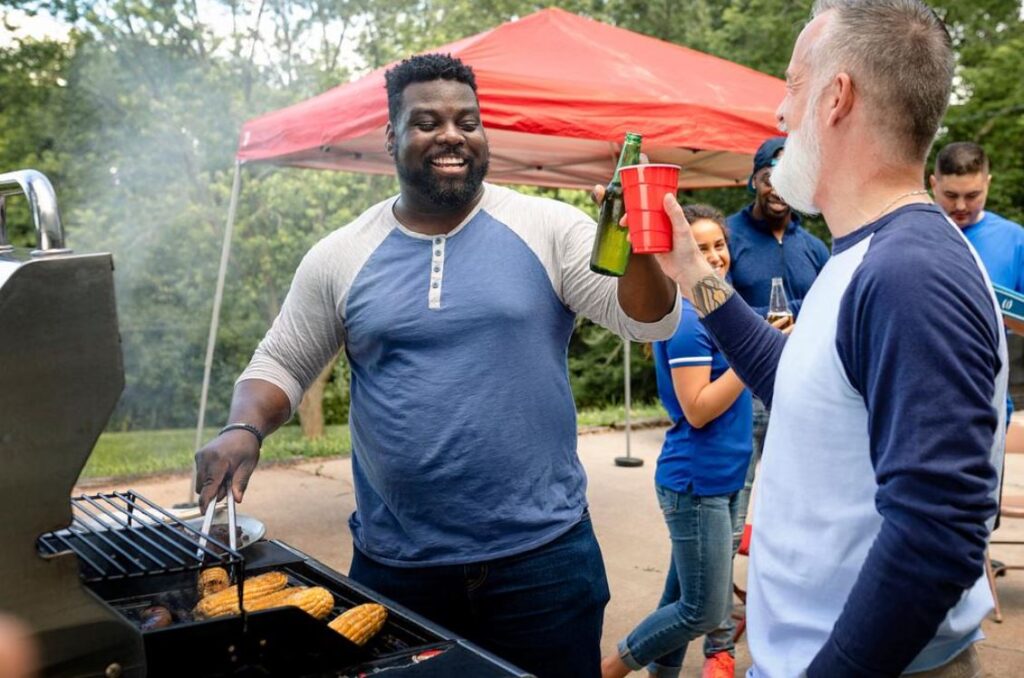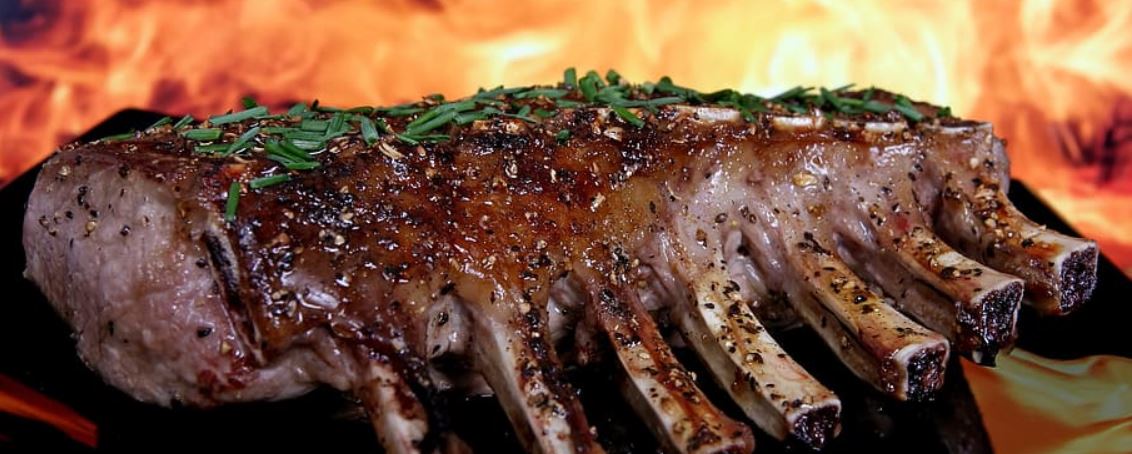The Kitchen Revolution Your Mind Needs
Marcus dreaded coming home. Another takeout box. Another silent dinner scrolling through his phone. But when his neighbor invited him to a weekly “guys cook night,” everything changed. Within months, he wasn’t just eating better—he was feeling better. Here’s the reality: Men who eat socially are more likely to feel better about themselves and have wider social networks capable of providing emotional support. Cooking together isn’t just about food—it’s medicine for your mind.
Why Your Brain Craves Community in the Kitchen
Food has always been humanity’s social glue. But here’s what science reveals about cooking together.
Systematic research shows that cooking interventions yield positive influences on socialization, self-esteem, quality of life, and mood. When men cook together, something powerful happens in their brains.
Dr. Robin Dunbar from Oxford University’s Experimental Psychology department explains: “Social eating has an important role in the facilitation of social bonding, and communal eating may have even evolved as a mechanism for humans to do just that. We know from previous studies that social networks are important in combating mental and physical illness.”
Your brain releases feel-good chemicals when you share meals. Oxytocin flows. Stress hormones drop. Connection builds. It’s not just tradition—it’s biology.
The Science That Changes Everything
Study #1: The New Zealand Breakthrough Research involving 8,500 adolescents found that cooking ability was positively associated with better family connections, greater mental well-being, and lower levels of depression. The social aspect was key—cooking wasn’t just a skill, it was a connector.
Study #2: Community Kitchen Power Community kitchen programs demonstrated that cooking groups help foster socialization and improve social isolation. Participants reported a sense of belonging, shared interests, and genuine enjoyment of others’ company.
Study #3: The Happiness Factor The World Happiness Report found that across cultures, sharing more meals is associated with greater subjective wellbeing. Men who cooked and ate together showed measurable improvements in life satisfaction and social connection.
How Cooking Together Rewires Your Mental Health
Social Pressure Relief Men often struggle with face-to-face conversations. Cooking provides shared activity that reduces social pressure. You can talk while chopping. Share stories while stirring. Bond without the intensity of direct eye contact.
Mastery and Confidence Every successful dish builds self-esteem. Research shows cooking interventions improve confidence and self-worth through repeated experiences of accomplishment.
Purpose and Meaning Feeding others activates ancient pathways of purpose. Studies reveal that cooking for others builds confidence, self-esteem, and forges connections while showing gratitude and care.
Better Nutrition, Better Mood Groups that cook together eat better food. As we discussed in our seasonal nutrition guide, what you eat directly impacts your mental state. Cooking together ensures you’re fueling your brain properly.
Biblical Wisdom: Food as Fellowship
Scripture reveals deep truths about shared meals and community. The early church “devoted themselves to the apostles’ teaching and the fellowship, to the breaking of bread and the prayers” (Acts 2:42). They understood something profound.
Jesus spent much of his ministry around meals. His mission strategy was “a long meal, stretching into the evening.” He knew that breaking bread together breaks down barriers.
Biblical hospitality wasn’t just politeness—it was spiritual practice. When we share meals, we reflect God’s provision and create space for authentic relationship. Abraham welcomed strangers with food and entertained angels. Every shared meal becomes an opportunity for transformation.
Take Action: Your Cooking Community Strategy

Start a Guys’ Cooking Night
Pick one evening weekly. Rotate hosting duties. Start simple—tacos, pasta, grilled burgers. Focus on fun, not perfection. Research shows even basic cooking groups improve socialization and mood.
Master One Signature Dish
Choose something you can teach others. Chili, stir-fry, or barbecue ribs. Having a “go-to” dish gives you confidence and creates opportunities to contribute to group meals.
Join Community Kitchen Programs
Many churches, community centers, and nonprofits host group cooking events. These programs consistently show positive impacts on mental health and social connection.
Create Meal Prep Partnerships
Team up with neighbors or coworkers for Sunday meal prep. Cook large batches together, then split portions. You’ll eat healthier all week while building relationships.
Host Regular Family Dinners
Make Sunday dinner sacred. No phones. Real conversation. Family meals create rhythm, structure, and emotional connection that supports mental health.
Try This Today
The 15-Minute Connection Challenge: Call one friend and say: “Want to cook dinner together this week?” Pick something simple—even assembling sandwiches counts. The goal isn’t gourmet food; it’s shared experience.
Starter Recipe for Two Guys:
- Brown 1 lb ground beef together
- Add taco seasoning and diced tomatoes
- Warm tortillas while talking about your week
- Build tacos side by side
- Eat without phones
Total time: 20 minutes. Total impact: Immeasurable.
Weekend Project: Plan a “Grill and Chill” afternoon. Invite 2-3 neighbors. Everyone brings something to throw on the grill. You provide drinks and sides. Watch how conversation flows when hands are busy and barriers are down.
The Bottom Line
Cooking together isn’t just about making food—it’s about making connections that heal your mind. When you share the kitchen, you share stories, struggles, and solutions. You build the social network your mental health desperately needs.
Tomorrow: Discover how male support groups can transform your mental health journey—finding and starting communities that actually work.
🤝 You’re not alone in this journey
Resources
- Psychosocial Benefits of Cooking Interventions: A Systematic Review – PMC
- Social eating connects communities – University of Oxford
- Well-Being and Cooking Behavior: PERMA Model Framework – PMC
- The Mental Health Benefits of Cooking for Others – Organic Valley
- Sharing meals with others: World Happiness Report
- Food and Social Bonding – WeChronicle
- Why Male Bonding Is Good For Your Mental Health – Regain
- Bible Verses About Eating Together – Bible Repository
- Food, Fellowship, and the Aroma of the Gospel – Gospel Coalition India

Leave a Reply